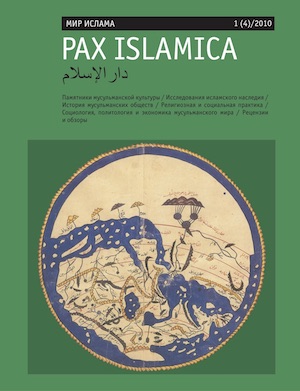
Over the fourteen centuries of its existence, the Muslim world has seen many changes caused by various factors – external and internal, objective and subjective. The central topic of this issue is the processes of transformation in the Muslim world in the spheres of statehood and legal, political, religious, and educational institutions.
Transition from the predominantly agrarian to the modern industrial, and sometimes postindustrial, society is considered as the most important transformation process of the present time. This process has caused major changes in the entire Muslim world, affecting almost all social spheres, state and legal institutions, and economy. Given that this transformation was often not of a classical Western nature, but was accompanied by a very selective adoption of state and legal institutions, its results are very peculiar and fall outside the classical Western theories.
Full Issue
| View or download the full issue | PDF (Русский) |
Table of Contents
Monuments of Muslim Culture
|
Yuri Averyanov
|
7-22
|
Studies of the Islamic heritage
|
Bakhtiyar Babadjanov
|
24-42
|
|
Ilya Zaytsev
|
43-59
|
History of Muslim Societies
|
Dmitry Arapov
|
61-71
|
|
Vladimir Bobrovnikov, Amir Navruzov, Shamil Shikhaliev
|
72-94
|
|
Aidar Habutdinov
|
95-119
|
Religious and social practice
|
Yayoi Kavahara
|
121-139
|
Sociology, political science, economics of the Islamic world
|
Grigory Kosach
|
141-162
|
|
Leonid Syukiyaynen
|
163-180
|










